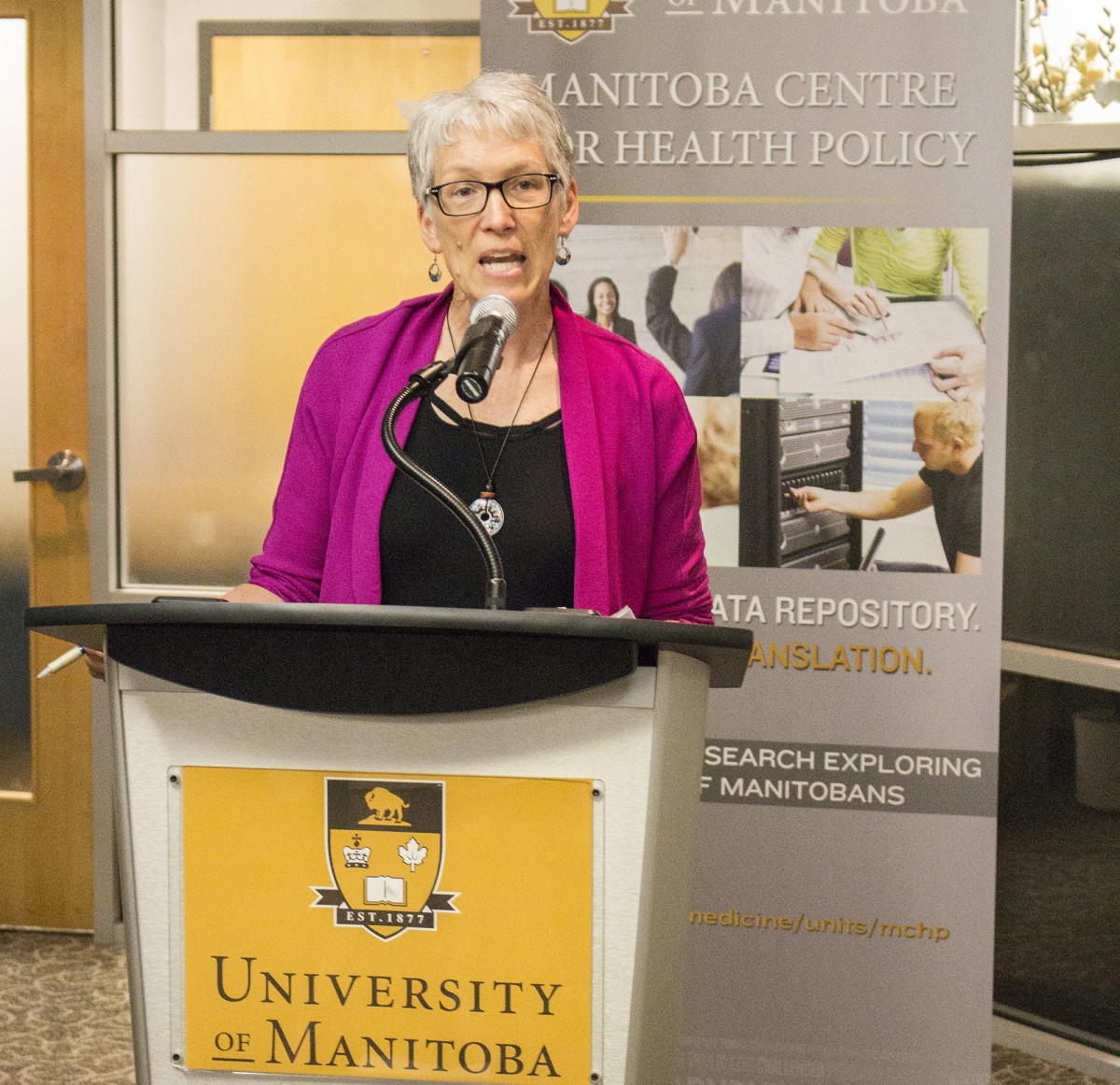
Marni Brownell, lead author on study, talks to media about the new MCHP report findings.
Manitoba can do better for children in care, new report says
Children who have been taken into care in the child welfare system have poorer educational outcomes than others, according to a new study from the Manitoba Centre for Health Policy at the University of Manitoba.
The Educational Outcomes of Children in Care (summary report)looked at all Manitoba children under age 18 who have been in care for any length of time. Researchers compared these children with those who had never been in care but whose families had received other services from Child and Family Services (CFS). They also compared these two groups to children who had no involvement with the child welfare system.
By linking de-identified records of school performance, birth outcomes, and CFS histories, researchers acquired a clear picture of children in care and how they are doing in school. Performance indicators for the whole range of school years were examined, to see how children in care performed compared to those who weren’t in care.
Among children in kindergarten, over half of those in care were found to be “not ready” for school learning in at least one of five broad areas, including physical, cognitive, language, emotional and social development. Children in care also scored lower on math and reading assessments conducted in Grades 3, 7, and 8, and achievement tests taken in Grade 12. Less than one third graduated from high school.
Manitoba has one of the highest rates of children in care in the world; in 2014, there were more than 10,000 children in care. Although about 25 per cent of children in Manitoba are First Nations, Metis, or Inuit, they make up almost 90 per cent of the children in care. Possible reasons for this imbalance are systemic racism, poverty and poor health among Indigenous communities, and the legacy of the residential school system, which has had devastating effects on Indigenous family structure and other social support systems.
Children in care differed from the rest of the child population in other important ways that reflect serious barriers to learning. They were seven times more likely to have a developmental disability and over four times more likely to have a mental disorder. Children in care were also more likely to be born to mothers who started bearing children as teenagers, and who reported using alcohol or drugs during pregnancy. Almost three quarters of children in care come from families living in poverty (i.e., receiving income assistance).
“Our study is not saying that being in care itself is detrimental to children’s education, but that the risk factors associated with being taken into care – like poverty – are the same ones that can negatively affect learning,” says the study’s lead author Marni Brownell, associate professor in community health sciences in the College of Medicine. “Manitoba’s at-risk children would benefit from more effective preventive programs and family support services, better housing, anti-poverty programs, and other social services that address the root causes of these factors.”
Manitoba Minister of Education and Advanced Learning James Allum responded to the report: “We would like to thank the Manitoba Centre for Health Policy for this report. We know that kids in care need additional support when they go to school so they can have the same head start in life as we all want for our children. We commissioned this report to develop practical solutions that teachers, social workers, and caregivers can use to help students in care succeed. We accept all of the recommendations to move forward and continue to invest in our schools and social services so that students can thrive.”
Research at the University of Manitoba is partially supported by funding from the Government of Canada Research Support Fund.






